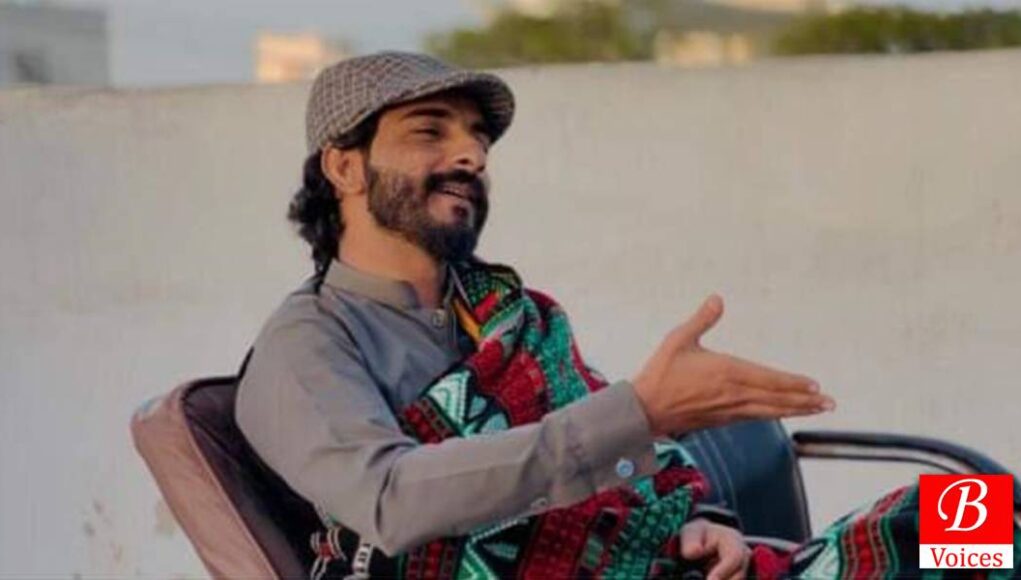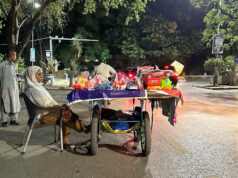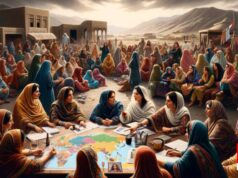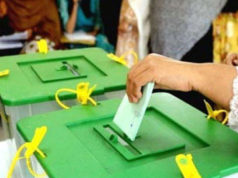By Yasmin Sana
Folklore stories are passed to the coming generations verbally making it a trickledown effect, stories narrated to the children by elders of the family. This keeps the stories afloat, passed to the generations to come and then to the next.
Scrolling down my Instagram feeds, I came across one such storyteller whose storylines made my fingers standstill. I tapped one of the story links and appeared a young man with a Beret cap on his head, and a Balochi Shawl wrapped around his chest and shoulders, narrating a short Balochi story. Salaudin Bwas’ pitch, voice, and story-telling gestures left me mesmerised.
Bewas hails from Gwadar and his curiosity about storytelling propelled him to the department of Urdu Literature at the University of Karachi. Bewas says he has inherited this art from his grandfather, Mahmood Noor Deen.
“Sitting with storytellers was close to my heart so was my grandfather who was a great storyteller of his times. I liked those stories, shared them with my friends and perhaps they were saved somewhere in my conscious due to which I am able to recall those stories now,” recalls Bewas.
With the digital age opening up vistas of sharing knowledge and preserving it, storytellers have a hand on digital skills to utilise. Once the storytellers could hardly reach a small group of people to narrate the stories they had inherited from their ancestors, now they can multiply the outreach through the internet and websites. Bewas is not carrying this onus alone. He has a team behind the scene who are struggling to revive the sinking voyage of Balochi Literature.
Bewas believes that the gatherings encouraged him to tell stories. “My stories were first recorded by the editor of Gawadar-e-Tawar run by Javed Mola Baksh in 2021. He brought them in front of people,” he says thanking Gawadar-e-Tawar. My hard work, says Bewas, earned me a positive response from the viewers. This heightened my hope that the people still praised and loved listening to stories.
Like many growing-to-fame artists face an entourage of criticism, Bewas has not been an exception. “I was criticised at the beginning, they raised questions about my way of narration, and told me that I miscalculate the stories and characters, which I think is not true. I tell them that there are similar stories which have been narrated differently in different cities, therefore I am not bound, as a storyteller, to follow one pattern of a particular area,” Bewas adds.
‘Mir Bal Wazeer’, a short story, is close to Bewas’ heart. As per Bewas, he wants to publish his stories in book form but everything needs an investment. “My friends,” says Bewas, “want me to publish my work and I have on it already.”
Salauddin’s core purpose is to highlight an issue through his stories which he believes is not an exaggeration in any case. His stance is in contrast to the criticism according to which Bewas exaggerates the stories. Bewas wants to travel to other cities in the province but this needs huge funding and resources.
He tells Balochsitanvoices that there have been great storytellers from Gawadar like Eid Mohammad from Negur, and his son Noor Mohammad. Unlike the mentioned storytellers, Salauddin is young energetic, and enthusiastic.
According to him, children living in a modern age watch Motoo Patlu and hardly find any story in Balochi which could be shown to children. The statements have legitimacy. One way or the other, many Baloch males and females are trying to record their thoughts on social media and making the documents available to readers and viewers.
The efforts of Bewas cannot be neglected as he has revived the culture of storytelling in Balochistan. Storytelling has been a rooted tradition in old times in Balochistan. We have grown up hearing stories of Pogoo, Luyook o Korusuk. But this generation adapts everything from the internet and YouTube.
Art is a treasure for every nation and the efforts of the artists cannot be dismissed who are working with zeal and enthusiasm despite facing many a hurdle. Dedicated people like Salauddin need more space and platforms to promote their art and work in a better way. Salauddin’s attempt at storytelling will truly encourage more students and will contribute to filling the vacuum which has been left unfilled for a long now. Moreover, his effort of bringing his stories on social media has also given modernity to Balochi Literature in this era of globalization.
Share your comments!








